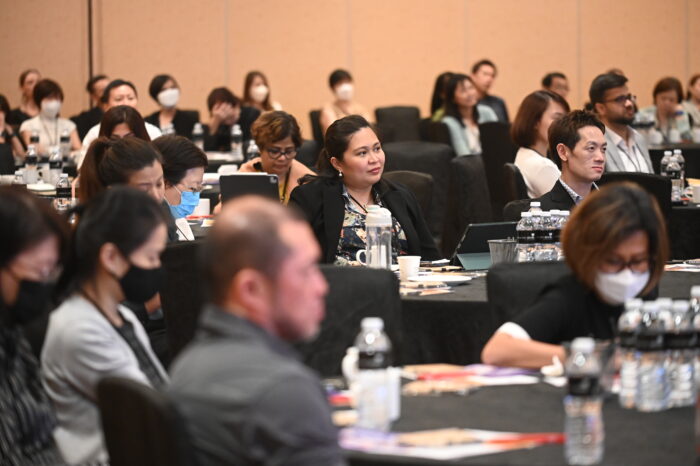Singapore wants wage increment to correspond with productivity

Increasing wages too rapidly will negatively impact Singapore’s global competitiveness, cautioned Singapore’s Finance Minister.
New Zealand urged to address gender pay inequality

To ensure women in the workforce are paid fairly, the government has also been urged to make pay gap reporting mandatory.
South Korea urged to support women’s return to workforce

More must be done to inncrease female labour force participation, which is crucial to boost economic growth, says the IMF.
Employees in India can expect wages to rise in 2023

After an annual rise of 10.6% in 2022, which is the highest in the world, salaries in India are expected to increase by 10.4% in 2023.
Gig economy framework proposed in Malaysia

The government has been urged to develop a gig economy framework or high-value partnerships to ensure that gig workers receive appropriate guidance.
Productivity can be key tool to boost wages in Australia

Instead of multi-employer bargaining, the Australian government has been urged to increase productivity to raise wages.
How to create HR sustainability at workplaces

As organisations face challenges in retaining talent, the Good Work Framework by the World Economic Forum provides strategies to overcome these issues.
Number of informal workers expected to decline in India

Citing the many challenges of managing informal workers, many companies in India are looking to formalise their workforce.
Malaysia prepares private sectors workers for retirement

A social safety net for private sector workers after 60 has been proposed by Malaysia’s Human Resources Minister Datuk Seri M Saravanan.
The Philippines approves freelance workers protection bill

House Bill 615, also known as the Freelance Workers Protection Act, was unanimously adopted by the House labour and employment committee.
Australia moves to improve female workforce participation

Australian Prime Minister Anthony Albanese has been urged to focus on paid parental leave and pension entitlements.
Pay transparency can help narrow gender inequalities in the workplace

On average, women are paid about 20% less than men worldwide, primarily due to gender-based discrimination.
Firms in Japan consider cashless payment of salaries

By the next fiscal year, companies may be allowed to digitally pay their employees’ wages to their cashless accounts.
Workplace gender disparity widens in Hong Kong

Despite holding attributes to be successful, women have been paid less than their male counterparts over the last five years.
Thailand considers abolishment of daily employment

An amendment to the Labour Protection Act has been proposed to abolish temporary and daily employment and upgrading the status of workers.
Redefining the role of HR leadership in reshaping work

More than 170 HR and business leaders discussed topics like modern HR mindsets, flexible work and employee wellbeing at HR Leadership Series: Live.
Companies in India use promotions to retain staff

At a time of talent shortage, several companies are giving off-cycle promotions to eligible employees as they attempt to hold on to experienced staff.
Malaysia offers gig workers more protection

The Sharing Economy Committee (SEC) will train and verify gig workers, as well as create job placements in high-value jobs.
Taiwan officially approves minimum wage raise

Taking effect from January 1 next year, the monthly minimum wage will be raised to NT$26,400 (US$855) and the basic hourly rate to NT$176 (US$5.7).
Gender inequality still prevalent in South Korea’s workplace

The employment rate for women in South Korea was at 51.2% last year, which was 18.8 percentage points lower than the male employment rate.
Job hopping declines in Japan despite stagnant wages

Since 2021, the number of workers switching jobs dropped 310,000 to 2.9 million, marking a fall for the second consecutive year.
Some small business employees South Korea paid below minimum wage

Among small business employees, only 9.6% were paid extra for extended working hours and only 13.2% had annual leave provision.
Boosting youth employment with higher wages in the Philippines

The government has been urged to create better paying jobs for employees aged 15 to 30, who earn the lowest wages in the country.
10-day paid bereavement leave proposed in the Philippines

Workers in both private and public sectors may soon be granted a 10-day bereavement leave with full pay if a proposed bill becomes law.
Some workers in South Korea fear going on parental leave

Men were found to be more sensitive than women to negative perceptions toward using parental leave, according to a new survey.
Indonesia’s wage subsidy support to reach 16 million workers

The Ministry of Manpower is making efforts to ensure that the wage subsidy assistance (BSU) can start to be distributed this month.
2 Cents: Restructuring of work calls for a personalised approach

As work continues to evolve, a one-size-fits-all approach no longer works and organisations must exercise more flexibility to address employee needs.
Low-wage workers in Singapore to earn more

Before hiring any foreign worker, local employers will need to meet the requirement of paying all their local workers at least S$1,400.
New Zealand raises living wage to support low-wage workers

From September 1, the living wage in the country has increased by 90 cents to NZ$23.65 (US$14.5) an hour, although its implementation is not mandatory.
Increase of parental leave could potentially boost Australian economy

Unions have called for paid parental leave to be extended to 52 weeks, paying parents their actual wage and including superannuation.
